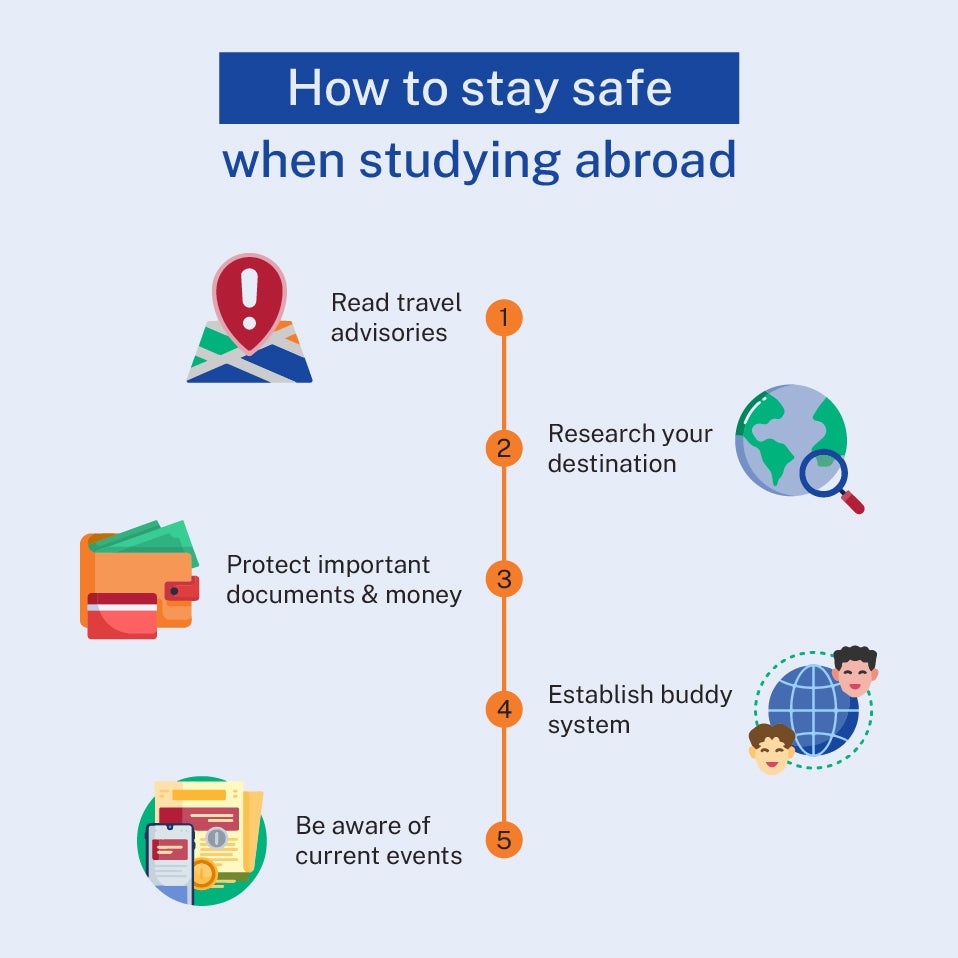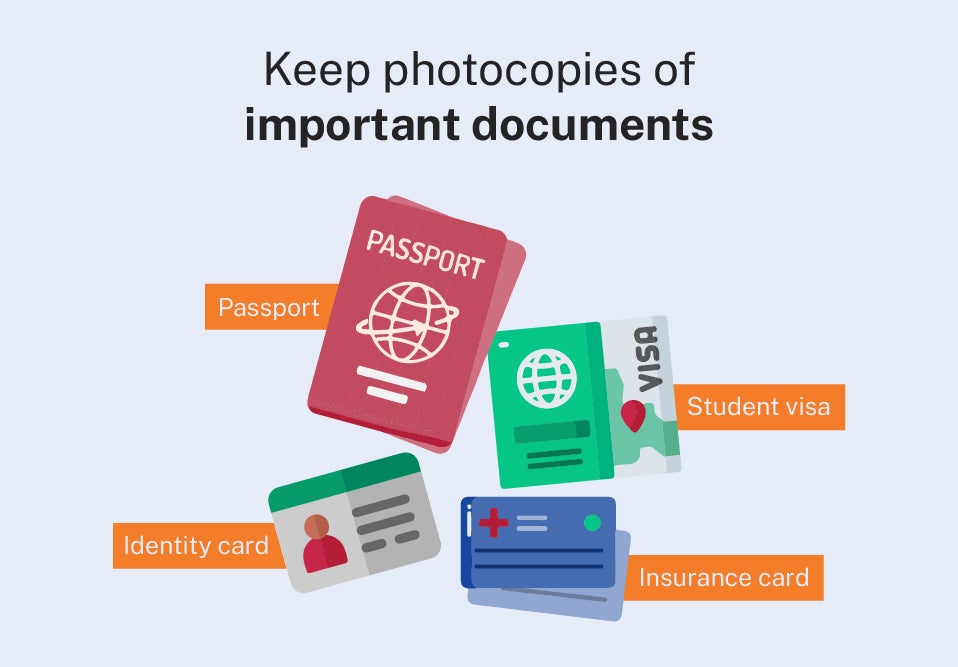
ESSENTIAL SAFETY TIPS FOR STUDENTS STUDYING ABROAD
Studying abroad is a once-in-a-lifetime opportunity to immerse yourself in a new culture, expand your horizons, and forge lasting friendships. It’s an invaluable experience that will change you for the better. As you leave your home country to embark on this exciting adventure, it's important to prioritise your safety and well-being.
Remember, new opportunities often come with new challenges, and staying safe while studying abroad requires a combination of basic preparation, observation, and informed decision-making. So, here are a few safety tips to help you stay safe during your study abroad experience.

1. Read travel advisories
Before take-off, try and gather as much information as you can about current travel warnings, if any, that are specific to your host country. It is recommended that you avoid travelling to countries on the “do not travel” list issued by your home country.
Be aware that most insurance companies will consider your coverage invalid if you sustain injuries or get harmed in countries designated as high-risk or dangerous. This means that any medical expenses incurred as a result of an accident or illness in these countries will or may not be reimbursed by your insurance provider.
Besides, it’s also a good idea to get as much information about the country you are travelling to, such as traditions, procedures on how to do things, and much more.
2. Research your study destination
Once you arrive, begin acquainting yourself with the area. Being aware of your surroundings is crucial. Firstly, locate your country’s embassy or consulate, and note how to contact them during emergencies.
Also, understand and abide by local laws and customs, as well as try to blend in with the locals. Tourists are often considered “easy income” for pickpockets and thieves, so it’s best to avoid looking like one.
Pro tip: Take fashion and social cues from the locals and use your host country’s native language as much as possible.You should also start getting acquainted with the map of your city, because staring too hard at Google Maps when you’re outside could be a dead giveaway.
Knowing your way around the city is a great way to stay safe – nothing says “local” better than someone who knows their way around their neighbourhood. Get to know the public transportation system and try to find several safe routes back to your accommodation, so you’ll know how to get home as quickly as possible in an emergency. Be cautious of people when in enclosed spaces, and be sure to research common scams in the area.
3. Protect important documents and money
This probably goes without saying, but you must keep your passport and valuable belongings close to you at all times. Prepare photocopies of important documents in case of theft or loss: this includes your passport, identity card, student visa, and any insurance cards. Be sure to store all important documents in a secure place. If possible, leave a copy of all important documents with your parents or guardians at home, just in case.
When it comes to carrying money around, apply the “less is more” rule. In other words, don’t carry more than you need, and don’t flaunt what you have. Keep any excess money in a safe place and never carry your wallet in an easily accessible area. If you’re carrying a handbag or pouch, opt for one with zippered internal compartments.

4. There’s safety in numbers
Being frequently alone poses a greater risk compared to moving about in a group of friends. An oldie-but-goodie piece of advice is to employ the buddy system. Travelling as a group or in pairs, especially at night, can deter unwanted attention.
Make sure that your friends and family are aware of your whereabouts and travel plans at all times, so they’ll know where you are, should problems arise. It's advisable to consider registering with your home country's embassy when residing in a foreign country for an extended duration.
5. Be aware of current events
Stay informed about the sociopolitical climate to understand how your home country is currently being portrayed. Be mindful of how people from your nationality are perceived in your host country, and aim to steer clear of public demonstrations, protests, and civil unrest. Staying updated on current events will help students avoid inadvertently causing offence or getting involved in unwelcome situations.
To make your study abroad journey one to remember for all the good reasons, keeping an eye on potential hazards is crucial. This paves the way for a trouble-free and delightful experience, making your time abroad truly fantastic.
Stay safe, and have a wonderful time studying abroad!